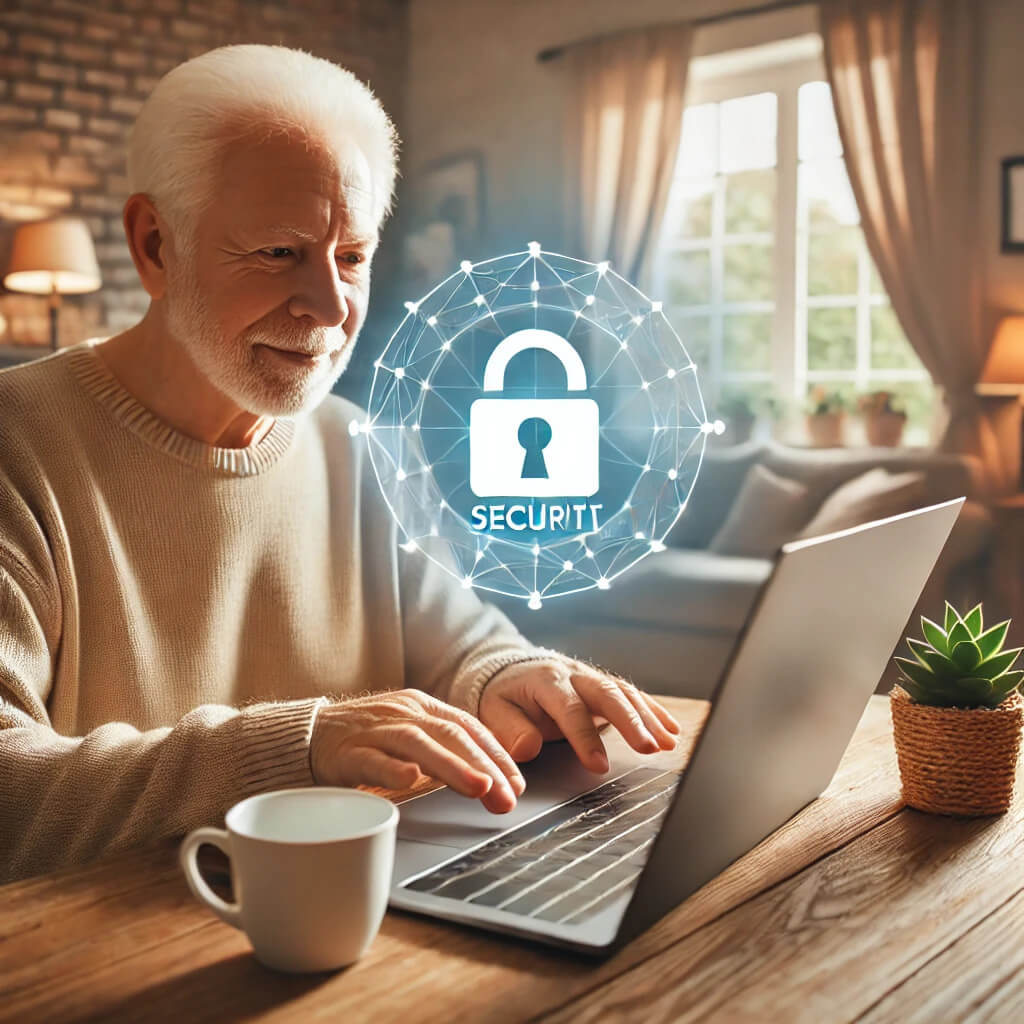The growing importance of the internet for daily existence requires seniors to adopt measures that will protect them both safely and securely online. Through the internet people gain access to numerous ways for staying connected while enjoying services and enjoying entertainment. Using the internet provides advantages but it also comes with particular security threats. Complete internet safety knowledge can be achieved through the following helpful guidelines designed for senior users:
1. Use Strong, Unique Passwords
Prolonged passwords offer your main protection from internet threats. Complex authenticating passwords you should never use include “12345” and “password” since they lack security. Build lengthy passwords through a mixture of letters both large and small with numbers and unique symbols. Each account should have its own unique password as an increased security measure. Storage of different passwords in a secure password manager offers an effective solution.
2. Be Cautious of Phishing Scams
Between all cybercriminal activities phishing scams stand as the most typical occurrence today. Theft of personal information happens through fake online impersonations of legitimate organizations via email text and website platforms. You should check that the email address of the sender matches before you click any provided links. When you get an email that requests personal information or online password change you should avoid following the provided link. Verify the request by accessing the website from its official address.
3. Update Your Software Regularly
Your security relies heavily on keeping both your devices along with all software programs updated regularly. Software update distributions incorporate security enhancements which defend users from recent threats. Your smartphones along with tablets and computers should automatically check for important updates to keep your security intact. Everyone can perform this basic measure which stops cybercriminals from taking advantage of existing system weaknesses.
4. Use Secure Wi-Fi Networks
When browsing the internet users must always connect through secure Wi-Fi networks. The open Wi-Fi networks at coffee shops or aerospace terminals remain unsecure and you should find alternative Internet connections for browsing purposes. Virtual Private Networks (VPNs) should be used when accessing public Wi-Fi since they provide secure encryption for your connection while maintaining privacy.
5. You should always monitor your control over what social media reveals to others.
Social media networks provide excellent family and friendship connection possibilities yet simultaneously present possible security threats. Set your privacy settings at maximum control to determine which audience sees your posts and information. You should never reveal your sensitive personal data which includes location, contact number or financial records on the internet.
6. Protect Your Personal Information
Always confirm the authenticity of sources before you provide personal information through any mode of communication including email and text message or phone. Search for “https” and a padlock icon as security indicators when selecting online stores because these features will indicate website security levels.
7. Be Skeptical of Unsolicited Offers
Stay alert to displayed offers which seem better than they should because receiving unwanted emails, phone calls or text messages might signal something fishy. The scammers employ deceptive methods to con people out of their personal details or force them into making non-existent financial deals. Check all promotional offers before accepting them and only share financial data after verifying the origin of the offers.
Internet safety protection for seniors can be achieved by following these fundamental guidelines as they explore the advantages of digital environments.
Protect yourself through awareness combined with your exploration of the internet because both staying informed and safe will allow you to discover what the internet offers.
